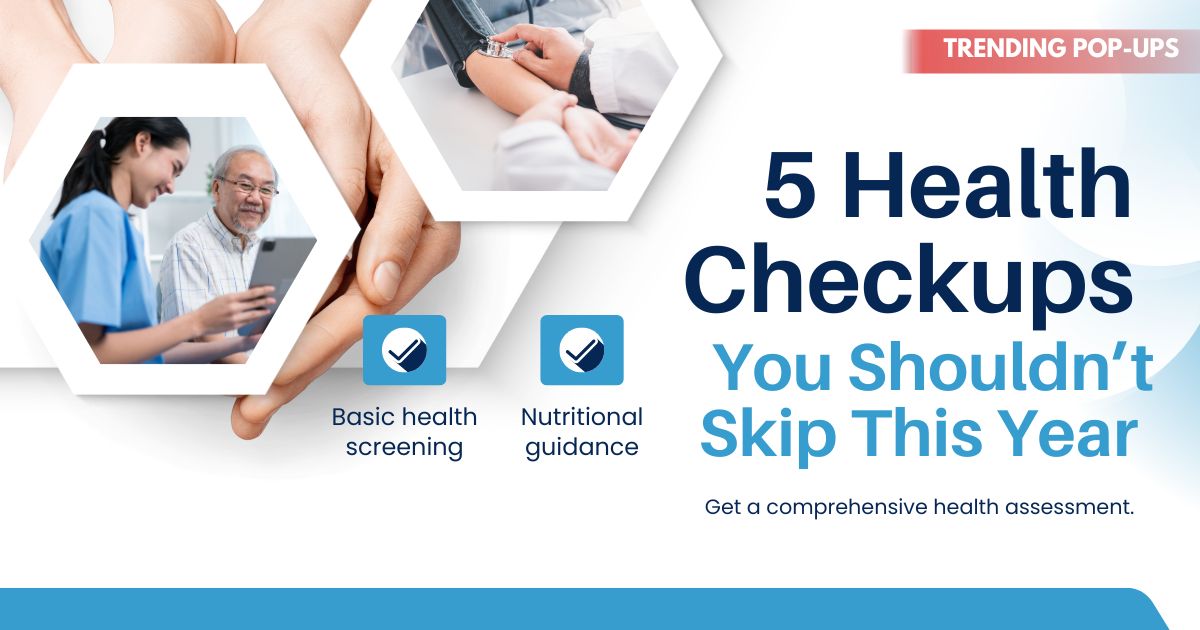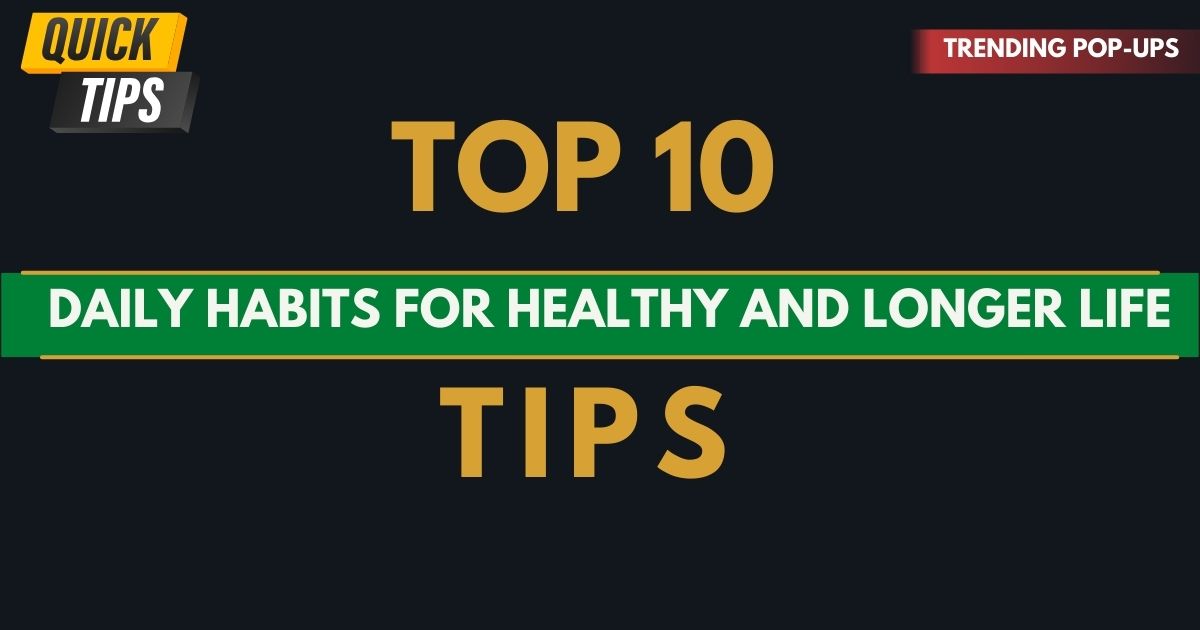In today’s fast-paced lifestyle, many people prioritize work, family, and daily commitments over their own health. However, regular medical checkups are crucial for early detection of health issues and maintaining overall well-being. Preventive healthcare not only saves lives but also reduces the financial and emotional burden of late-stage treatments. To help you stay ahead of potential health risks, here are five essential health checkups you shouldn’t skip this year.
1. Annual Physical Examination
An annual physical exam is the foundation of preventive healthcare. It allows your doctor to evaluate your overall health, detect potential concerns, and recommend lifestyle changes if necessary.
What It Includes:
-
Blood pressure measurement
-
Weight, height, and BMI calculation
-
Basic blood tests (cholesterol, blood sugar levels, liver and kidney function)
-
Immunization updates
-
Discussion of personal and family medical history
Why It Matters:
A yearly checkup can reveal silent conditions like hypertension, high cholesterol, or diabetes before symptoms appear. Early detection leads to effective management, preventing complications such as heart disease or stroke.
2. Blood Pressure and Heart Health Screening
Cardiovascular diseases remain one of the leading causes of death worldwide. Monitoring your heart health is non-negotiable, especially if you have a family history of cardiac issues or live a sedentary lifestyle.
What It Includes:
-
Blood pressure test
-
Electrocardiogram (ECG) if necessary
-
Lipid profile test (cholesterol and triglycerides)
-
Stress test (for high-risk individuals)
Why It Matters:
Unchecked high blood pressure or cholesterol can silently damage arteries, increasing the risk of heart attack or stroke. Regular screening helps in early intervention through diet, exercise, or medication.
3. Cancer Screenings (Age and Risk-Specific)
Cancer screenings are among the most important preventive measures. The type of screening depends on age, gender, and family medical history.
Common Screenings:
-
Mammogram (for women 40+ or earlier with family history of breast cancer)
-
Pap smear and HPV test (for cervical cancer in women)
-
Colonoscopy (for colon cancer, usually recommended at 45+)
-
Prostate-specific antigen (PSA) test (for men over 50 or earlier if high risk)
-
Skin checks (for suspicious moles or growths)
Why It Matters:
Cancer is most treatable when detected early. Regular screenings improve survival rates and reduce the chances of aggressive treatments.
4. Diabetes and Thyroid Check
With the rise in sedentary lifestyles, diabetes and thyroid disorders are becoming increasingly common. These conditions can progress quietly, causing severe complications if left untreated.
What It Includes:
-
Fasting blood sugar test
-
HbA1c test (for long-term glucose control)
-
Thyroid function tests (TSH, T3, T4)
Why It Matters:
Early detection of diabetes helps prevent nerve damage, kidney disease, and heart problems, while timely thyroid diagnosis prevents complications like weight issues, fatigue, and hormonal imbalance.
5. Eye and Dental Checkups
People often overlook their eyes and teeth, but both play a vital role in long-term health. Regular visits to your ophthalmologist and dentist can prevent serious complications.
Eye Exam Includes:
-
Vision check (for glasses or contact lenses)
-
Screening for glaucoma, cataracts, and macular degeneration
-
Retina examination (especially for diabetics)
Dental Exam Includes:
-
Teeth cleaning and cavity detection
-
Gum health check (to prevent periodontal disease)
-
Oral cancer screening
Why It Matters:
Eye exams can detect not only vision problems but also underlying conditions like diabetes and hypertension. Similarly, dental health is linked to heart disease, respiratory infections, and diabetes management.
The Bottom Line
Skipping regular health checkups may save time today, but it could cost your health tomorrow. By prioritizing these five essential screenings, you can take charge of your well-being and prevent serious illnesses. Remember, prevention is always better—and less expensive—than cure.
Also Read : 5 Quick and Healthy Breakfast Ideas Busy People Love
FAQs
1. How often should I go for a full body checkup?
Most adults should have a complete health checkup once a year. However, if you have chronic conditions like diabetes or hypertension, your doctor may recommend more frequent visits.
2. Are health checkups necessary if I feel fine?
Yes. Many conditions, such as high blood pressure or early-stage cancer, show no symptoms until they progress. Preventive checkups catch these issues early.
3. At what age should I start cancer screenings?
It depends on the type of cancer. For example, colon cancer screenings usually begin at 45, while women should start mammograms around 40. Always consult your doctor for personalized recommendations.
4. Do eye and dental checkups really affect overall health?
Absolutely. Eye exams can detect systemic diseases like diabetes, while poor dental health has been linked to heart disease and infections.
5. How can I prepare for a health checkup?
Get adequate rest, avoid alcohol and fatty foods before blood tests, and make a list of medications, allergies, and health concerns to discuss with your doctor.



